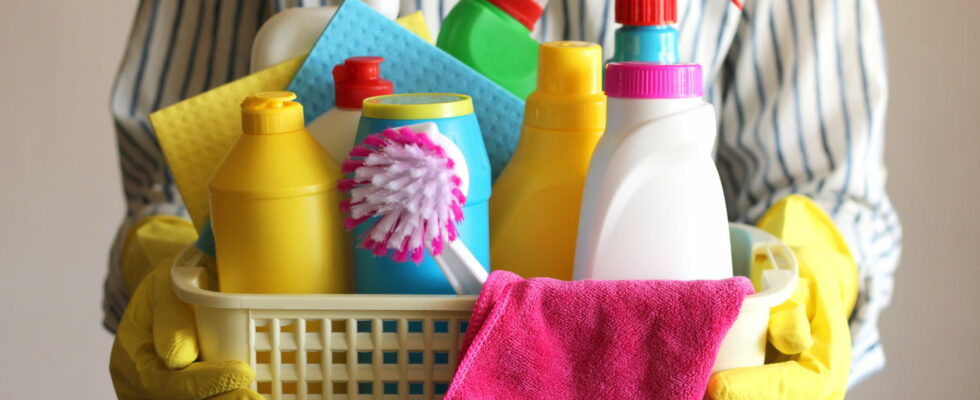Be careful with the household products you use at home! Some are particularly toxic and polluting, to the point of representing a danger for the environment, but also for your health.
When you clean your home, you probably think about disinfecting surfaces and removing dirt to create the healthiest environment possible for your family. Scrubbed toilets, polished windows, degreased oven… Everything goes! But behind the appearance of cleanliness and the pleasant fresh smell of certain household products hide harmful substances, both for health and for the environment.
Because if manufacturers put forward promises of efficiency and impeccable cleanliness, the ingredients of many detergents, sprays and other cleaning products are far from harmless. The indoor air we breathe every day is five to seven times more polluted than the air outside, according to the latest report from theADEME (Ecological Transition Agency). There are no less than 900 chemical substances, some of which come from household products, which contain volatile substances.
This is obviously not without consequences for our health. For example, 91% of household products tested emit formaldehyde, a proven human carcinogen. All of this can cause allergies, inflammation of the mucous membranes, breathing difficulties, asthma, and even endocrine disruption.
Among the products of greatest concern are window cleaners, which often contain ammonia. This substance, which is also found in pipe unblockers, bathroom and stove cleaners, and stainless steel cleaners, can cause eye irritation and breathing problems, especially in people with asthma.
Also problematic are room sprays and air fresheners, which often contain phthalates, a chemical compound known for its disruptive effects on the hormonal system. The caustic soda contained in pipe unblockers is also formidable. In addition to its danger for the skin and mucous membranes, its repetitive use leads to polluting discharges into aquatic environments.
Many household products also contain substances harmful to the environment which, once released into waterways, promote the proliferation of algae, which seriously disrupts biodiversity. And, of course, bleach should be avoided since it contains dichlorine, a very toxic gas.
Fortunately, there are alternatives that are more respectful of health and the planet. White vinegar, baking soda or even black soap are effective, non-toxic and much less polluting. Certain foods and condiments have also been proven to help with cleaning, such as lemon. Opting for these natural solutions not only protects your health, but also limits your ecological footprint.
